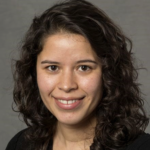
Andrea Gutierrez
Country of origin: Colombia
Host institution: Delft University of Technology
Hosting group: Medical Physics & Technology department
Project:
MuSiC: a novel Multi-Slit prompt gamma Camera for in vivo monitoring of proton therapy
Starting date: 15 January 2018
Abstract:
Proton beam therapy is a relatively new and exciting form of radiotherapy that is only now becoming accessible to most patients. Proton beam therapy enables the radiation dose to be more localised in the cancer tumour than conventional radiotherapy. This advantage can be used to reduce the exposure of the healthy tissue and vital organs surrounding the tumour to radiation.
However, the full potential of proton beam therapy is currently limited by uncertainties associated with the patient setup, daily anatomical variations, organ motion and dose calculation, which can compromise the treatment and result in underdosing the tumour and/or overdosing normal tissues. Thus, online monitoring of proton beam therapy is urgently needed. Nuclear de-excitation in proton-irradiated tissues produces prompt gamma rays, which can be imaged, offering a promising approach for real-time, in vivo treatment verification.
I will be based at TU Delft in Dr Dennis Schaart’s team at the Medical Physics & Technology department, where I will develop and test a novel design of a Multi-Slit prompt gamma Camera (MuSiC) for the non-invasive, real-time, in vivo monitoring of dose delivery in proton beam therapy.
The LEaDing Fellowship will offer me the opportunity to interact intensively with collaborators at the Holland Particle Therapy Centre (Holland PTC), Erasmus MC and LMUC, as well as other academic and industrial partners. I will also have the opportunity to expand my knowledge on the clinical application of physics and technology at the Clinical Physics department of Erasmus MC Radiotherapy.
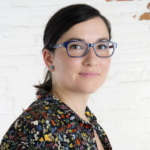
Aurora Dols Perez
Country of origin: Spain
Host institution: Delft University of Technology
Hosting group: Department of Bionanoscience
Project:
Biophysics of lipid nanotubes with a new approach: free-standing bilayers and optical tweezers
Starting date: 1 November 2017
Abstract:
Lipid nanotubes play a vital role in inter and intracellular communication and structural processes. They are found in several cellular organelles such as the endoplasmic reticulum, mitochondria and Golgi apparatus. The study of their biophysics is often carried on vesicles, supported lipid bilayers or living cells. However, these approaches present limitations and challenges such as to achieve asymmetric lipid distribution, to control dynamically the buffer and the membrane curvature.
My LEaDing fellowship project follows to investigate and characterize the dynamics and mechanics of lipid membrane tubes and tube networks with the use of novel free-standing membrane models combined with optical tweezers.
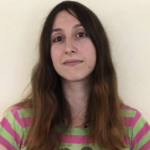
Clara Esteban Jurado
Country of origin: Spain
Host institution: Leiden University Medical Center
Hosting group: Human Genetics Department
Project:
Functional characterisation of deficiencies in Fanconi Anemia complementation group J.
Starting date: 2 January 2018
Abstract:
Germline biallelic mutations in FANCJ/BRIP1 cause Fanconi anemia, a rare genetic disease that results in bone marrow failure, growth abnormalities and a strong predisposition to cancer. Additionally, monoallelic mutations in this gene have been found to predispose to ovarian cancer with moderate penetrance. During my Ph.D. I performed germline whole-exome sequencing of individuals belonging to unrelated families with a strong aggregation for colorectal cancer and amongst other genes FANCJ was identified as a candidate for colorectal cancer susceptibility. The research conducted during this fellowship period will focus on the functional validation of the candidate variants in FANCJ gene identified in families with colorectal cancer aggregation during my Ph.D. and in other independent cohorts of colorectal cancer patients. These genetic changes will be generated in mouse embryonic stem cells using CRISPR/Cas9 technology and will be assayed for interstrand crosslink sensitivity and phenotypes associated with loss of homologous recombination.
In addition, two novel assays will be developed in order to probe two basic questions concerning FANCJ that are yet unresolved: i) what is the role of FANCJ in DNA double-strand break repair? While the protein is implicated in DNA break repair, it is completely unknown how it acts and in which stages of this biological process; ii) is mammalian FANCJ involved in cells to resolve secondary DNA structures that can occur during DNA replication and which can impede the replication machinery eventually leading to genomic instability when not properly and timely resolved?
Finally, a potential genetic relationship between FANCJ and the alternative end joining factor POLQ will be investigated and the mutational signatures present in cells with mutations in FANCJ and in double mutants of FANCJ/POLQ or other DNA repair genes will be studied.
This work will be performed in the lab of Prof. Marcel Tijsterman at the Human Genetics Department of the Leiden University Medical Center in collaboration with the group of Prof. Roland Kanaar located at the Erasmus Medical Center, Rotterdam.
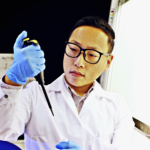
Dowon Bae
Country of origin: Republic of Korea
Host institution: Delft University of Technology
Hosting group: Chemical Engineering
Project:
Beyond the solar-fuel era: Single-device-based PEC flow battery
Starting date: 2 February 2018
Abstract:
In Netherlands, merely around 4% of total energy production is derived from CO2-neutral energy sources. In this context, photo electrochemical (PEC) flow battery has been investigated as a mean of simultaneously storing of the solar energy into chemicals, which can readily generate electricity via reversible reactions.
Flow battery system present facile electrochemical kinetics and its energy storage capacity is several times longer than that of conventional battery systems. However, low solar-to-chemical conversion efficiency and poor stability of the system due to corrosion greatly hamper its wide implementation. Herein, the proposed project aims for a breakthrough in a realization of a stable and efficient PEC flow battery system using a wide bandgap-based bifacial photo electrode architecture.
The proposed work will be executed for two years at Prof. Wilson Smith’s group at the Delft University of Technology which is renowned as one of the leading groups in the PEC fuel conversion. Also, the in-situ X-ray study will be conducted using a synchrotron facility in collaboration with Prof. Marc Koper (Leiden University) for understanding degradation mechanism of the photo electrodes.
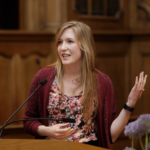
Elisabeth Timmermans
Country of origin: Belgium
Host institution: Erasmus University Rotterdam
Hosting group: Erasmus School of History, Culture and Communication
Project:
Why are you swiping? An innovative approach to study motives, expectancies and (un)successful interpersonal interactions on mobile dating apps
Starting date: 1 December 2017
Abstract:
I would like to introduce you to Lisa, a 25-year old woman who is looking for a romantic partner. She downloads the mobile dating app Tinder. She swipes right on men she could imagine herself dating. She matches with Frank, but abruptly ends the conversation when Frank says he and his friends would love to hear her best joke. Not much later she matches with Leonard, who tells her he is looking for female friends; he is madly in love with his boyfriend. Lisa is worried she will never find a partner on Tinder. How can I help Lisa have more successful interactions and attain her goal?
Recently, an expanding body of literature has investigated mobile dating applications such as Tinder. The majority of these studies have explored users’ motives, self-presentation and whether they facilitate casual sex. What has not been examined, however, is the online interpersonal process (or computer-mediated communication, CMC) occurring between two individuals after they match. While online dating sites often allow for online relationship development, the use of GPS in mobile dating apps minimizes the time between an online and offline encounter, resulting in an accelerated tempo of (short-term) interactions. Yet, several studies found that only a small proportion of matches between users actually lead to an offline encounter, suggesting that these online interactions are often not that successful in generating offline encounters. This points to the importance of studying online interactions. It is worthwhile to gain more information on the online interpersonal process in order to help users have successful interaction on mobile dating applications. In doing so, I will conduct both in-depth interviews and experiments and interpret my findings through the theoretical framework of Expectancy Violations Theory.

Erin Gorsich
Country of origin: United States of America
Host institution: Leiden University
Hosting group: Institute of Environmental Sciences
Project:
How do anthropogenic pressures modify mosquito abundance and mosquito-borne disease risk
Starting date: 30 April 2018
Abstract:
Anthropogenic change is a primary driver of mosquito-borne disease risk and includes urban development, agricultural encroachment and changing climatic conditions. These changes alter multiple ecological processes relevant for mosquito population dynamics. Human populations also respond to anthropogenic change, with predictable changes in movement and density that influence infection dynamics.
However, how anthropogenic change modifies mosquito-borne disease remains poorly understood because infection dynamics depends on both local ecological conditions and the spatiotemporal patterns of human movement. This study proposes an interdisciplinary approach to investigate how mosquito population dynamics and mosquito-borne infections respond to anthropogenic change.
It will combine ongoing experimental data collection lead by Leiden University (Prof. P.M. Bodegom; Dr. M Schrama) and expert opinion on mosquito-borne infection and control by medical professionals at the National Institute for Public Health and the Environment (RIVM, Dr. Marieta Braks) into a mathematical epidemiology framework.
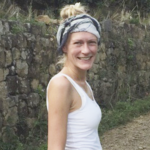
Fernande Pool
Country of origin: The Netherlands
Host institution: Erasmus University Rotterdam
Hosting group: International Institute of Social Studies
Project:
Social justice under secular liberalism: Muslims’ everyday ethics and human development in India and the Netherlands
Starting date: 30 April 2018
Abstract:
The proposed multidisciplinary research is a comparative study of Muslims’ everyday ethics under secular liberalism in India and the Netherlands. Secular liberalism has so far been unsuccessful in guaranteeing equal human dignity and especially in a time of polarisation and anti-Muslim sentiments it is vital to gain better insights in what human dignity means for a discriminated religious minority in a secular country and crucial to improve the policy and development frameworks that aim for inclusive social justice.
The goal is of the research is to contribute to academic, policy and public debates on migration, social justice and multiculturalism, related to religious minorities and secular governance arrangements in general and to the Muslim population in India and the Netherlands in particular. The research involves: (I) a study of forms and practices of secular liberal governance in India and the Netherlands, including their intellectual underpinnings; (II) ethnography of everyday ethics of the Muslim minority in India and the Netherlands; (III) a comparative exploration of how secular governance can impact on the ethical life of a religious minority; (IV) evaluation of how I), II) and III) can inform scholars’ and policy makers’ understanding and implementation of human development and security frameworks in a secular state with regards to religious minorities.
Findings from original ethnographic research in the Netherlands, to be undertaken during the Fellowship, will be put into dialogue with findings from my PhD research in India and both Indian and the Dutch data will be explored within the human development and human security frameworks. The research is based at the International Institute of Social Studies (ISS-EUR); involves collaborations with Leiden University CA-DS, LUCIS and LUCSoR; and a secondment at The Hague Institute for Global Justice.
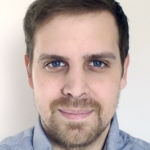
Gabriel Forn-Cuní
Country of origin: Spain
Host institution: Leiden University
Hosting group: Institute of Biology - Animal Sciences and Health
Project:
Autophagy stimulation and improving host defence against Aspergillus infections
Starting date: 13 November 2017
Abstract:
Invasive Aspergillosis is a life-threatening disease that causes high-mortality in immunocompromised patients due to the germination of Aspergillus spores inside host organs, mainly the lungs and in its most serious manifestation, the brain. Cells of the innate immune system, as circulating and tissue-resident macrophages and neutrophils, are the first line of defence against spore germination. Recently, the specialized autophagy pathway Lc3-associated phagocytosis (LAP) has been identified as an important fungicidal mechanism used by innate immune cells. However, Aspergillus spores incorporate immune-evasion mechanisms in their cell wall, as hydrophobins. Importantly, the melanin present in the cell wall inhibits LAP and prevents the killing of the germinating spores. Therefore, lack of activation of the host autophagy response appears to be a limiting factor in the defence against Aspergillus.
With this project, we will use the zebrafish embryos to study if autophagy stimulation can improve host defence against Aspergillus infections in vivo. For this purpose, we will perform a detailed characterization of the autophagy activation –and related pathways as LAP– in the innate immune cells interacting with the fungal pathogen, from the initial internalization to the first stages of hyphal growth. A collaboration with the Erasmus Medical Centre Rotterdam will provide insights into the importance and behaviour of brain local immune cells (as microglia) during the infection. We also aim to investigate which fungal cell wall components, in addition to melanin, are involved in the resistance of Aspergillus to this process. Finally, by genetically or chemically stimulating the autophagy response, we hope to determine whether this pathway presents a potential therapeutic target for the treatment of Aspergillus infections.
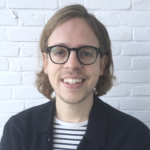
Geert-Jan Will
Country of origin: The Netherlands
Host institution: Leiden University
Hosting group: Institute of Psychology
Project:
Unraveling the neural basis of self-esteem in adolescent depression
Starting date: 1 February 2018
Abstract:
Depression is the leading cause of illness and disability, affecting more than 300 million people worldwide. More than half of people who suffer from depression have their first symptoms during adolescence. Low self-esteem is a major contributor to the development of depression among adolescents.
The goals of this project are: 1) to elucidate the brain mechanisms involved in changes in self-esteem when adolescents learn what other people think of them, 2) to test how these mechanisms are affected in depression and 3) to predict improvements and declines in depressive symptoms through combining measures of brain activity with reports about daily experiences collected using smartphone applications.
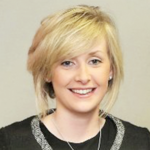
Hilary Barrett
Country of origin: Ireland
Host institution: Erasmus Medical Center
Hosting group: Department of Cardiology
Project:
Towards the Development of a Molecular, Morphological and Mechanical Model for the Characterisation of Carotid Plaque Rupture
Starting date: 1 October 2017
Abstract:
Catastrophic stroke is a global leading cause of death. 30% of strokes is triggered by the rupture of a vulnerable carotid artery plaque which can be characterised by certain morphological features. This project will address a critical challenge in biomechanical cardiovascular research using a novel integrated molecular-mechanical approach. In this regard, 3 fundamental functional layers containing imaging and mechanical information must be addressed before the predictive power of molecular imaging techniques can be implemented for plaque rupture; 1) inflammation imaging, 2) micro calcification imaging and 3) biomechanical stress analyses.
The non-invasive multimodal molecular imaging aspect of this project will involve collaborations with Prof. Beekman CEO/founder of MILabs industry and his partnered research group in the Department of Radiation Science and Technology at TU Delft who is an internationally recognised leader in the development of nuclear systems and technology. The use of novel tracers that direct target molecular processes involved in plaque rupture will be utilised to image inflammation by single photon emission computed tomography (SPECT) and micro calcifications by positron emission tomography (PET).
Additionally, specialised physiological plaque rupture experiments, which can emulate stresses required to induce rupture, will be performed to acquire the stress information and will be integrated with molecular imaging. This project ultimately creates an interdisciplinary collaboration between the Departments of Radiology & Nuclear Medicine and Biomedical Engineering at Erasmus MC resulting in the integration of the 3 functional layers and thereby disclosing the key drivers in plaque rupture for the development of a plaque rupture risk screening protocol.

Hiranya Sahoo
Country of origin: India
Host institution: Delft University of Technology
Hosting group: Department of Geosciences and Engineering
Project:
Devising a unified knowledge base in river-avulsion dynamics: deconstructing process-product linkage via coupled forward and inverse modeling
Starting date: 1 February 2018
Abstract:
Rivers are one of the most prominent geomorphic elements currently on the Earth and fossilized features on the planet Mars. River avulsion, a causative fluvial process, has profound implications to our socioeconomic prosperity. Given such importance, avulsion analysis has been a pivotal scientific pursuit, on the Earth as well as on Mars. However, in our pursuit of improved understanding on avulsion dynamics, a major lacunae stands out: inverse modeling (interpreting past processes from the rock record) and forward modeling (generating synthetic deposits from known processes) studies have been progressing rather in parallel and the cross-evaluation is rare.
Integration of inverse and forward modeling is key to advancing our understanding of avulsion processes and products. Employing Delft3D simulation and ancient data, the proposed research will target a coupled model-field analysis to investigate avulsion dynamics through cross-evaluation. Results from this mutually-validated study will be then used in formulation of a common knowledge base leading to development of new prediction tools and a fuller avulsion analysis at multi-disciplinary and cross-planetary levels. The execution of the proposed research includes central base at Delft University of Technology and potential collaboration with Leiden University and Deltares Institute.
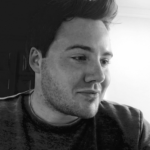
Jim A.C. Everett
Country of origin: United Kingdom
Host institution: Leiden University
Hosting group: Institute of Psychology
Project:
Parochial morality: The role of deontological and consequentialist moral judgments in regulating group behavior
Starting date: April 2018
Abstract:
As humans, we have a remarkable tendency to seek out and identify with people like “us” while distancing ourselves from “them” and it is in our group-based character that the angels and demons of human nature can be seen: the shining success of intragroup cooperation that has given us liberal democracy and social welfare; and the darkness of intergroup conflict that has given us genocide and war.
Interestingly, these well-documented tendencies appear at odds with universalistic moral rules that people adhere to and hold others accountable for (e.g. “thou shall not kill”; “treat others as you’d wish to be treated yourself”). And most intriguingly, we are not only more likely to act in a moral way towards people with whom we share a group membership, but these group memberships fundamentally shape what we think a moral act is.
How can this peculiarity be explained? And once we understand it, how can we overcome these biases to bring about a better state for the world? During my time at Leiden, I will be conducting research on parochial morality: the way that moral judgments intimately shape group processes and vice versa.
Specifically, I will explore the role that rule-based (“deontological”) versus consequence-based (“consequentialist”) moral judgments play in influencing the way we undergo sacrifices to help people like ‘us’ (“intragroup cooperation”) more than we help people like ‘them’ (“in group favouritism”), while simultaneously neglecting or even harming ‘them’ (“intergroup competition”).

Johanna Kostenzer
Country of origin: Austria
Host institution: Erasmus University Rotterdam
Hosting group: Erasmus School of Health Policy & Management
Project:
“Eggsplaining” Decision Making in Health Care Governance: A Multi-Level Comparative Study of Social Egg Freezing in the Netherlands and Austria
Starting date: 1 February 2018
Abstract:
With the further development of reproductive technologies, elective cryopreservation of oocytes or “Social Egg Freezing” (SEF) has emerged as an alleged option for women to postpone motherhood.
In Europe the practice remains to be highly controversial due to different value perceptions and bioethical concerns. The Netherlands and Austria follow opposing regulatory strategies. Analyzing the decision making process with regards to SEF in the countries concerned is considered necessary to better understand healthcare governance with respect to normative issues.
The application of a method mix including document analysis, Q methodology and focus groups shall enable the development of a decision making framework for normative issues in health care with practical relevance for policy makers.

Jolanda Luksenburg
Country of origin: The Netherlands
Host institution: Leiden University
Hosting group: Department of Conservation Biology, Institute of Environmental Science
Project:
<Project Title>
Starting date: <date>
Abstract:
<Abstract text>
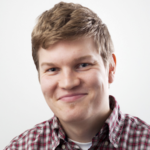
Jukka Hirvasniemi
Country of origin: Finland
Host institution: Erasmus Medical Center
Hosting group: Department of Radiology & Nuclear Medicine
Project:
Extraction of radiomic features from magnetic resonance images for assessment of osteoarthritic changes in bone
Starting date: 31 December 2018
Abstract:
Osteoarthritis (OA) is the most common joint disease in the world and it imposes a large economic burden on the society. OA affects all tissues in the joint but the etiology of primary OA and the role of subchondral bone are still unclear.
The extraction of the relevant quantitative information from medical images and linking it into OA disease process could potentially reveal unknown information about the development and progression of OA. Thus, the aim of this project is to apply quantitative image analysis methods on magnetic resonance (MR) images of the knee derived from large clinical and population-based studies on OA.
During the project, the association of quantitative MR image features to prognosis and status of OA, biomarkers and genetic data will be investigated. As a result of this project, new information about the role of bone in OA and about the linkage between MR image features and OA are expected.

Jyaysi Desai
Country of origin: India
Host institution: Leiden University Medical Center
Hosting group: Laboratory of Rheumatology
Project:
Investigating the role of neutrophils in Rheumatoid Arthritis
Starting date: 1 January 2018
Abstract:
Rheumatoid arthritis (RA) is an auto-immune disease in which auto-antibodies against modified proteins are important. Currently, a novel concept is emerging indicating neutrophil extracellular traps (NETs) as chronic antigen source that perpetuates and drives the auto-immune response.
In RA, different Anti- Modified Protein Antibodies (AMPA) have been described and my host laboratory at LUMC, Leiden recently discovered that these AMPA can be cross-reactive towards different modifications such as citrullinated and acetylated residues, both of which are found on NETs. At present, it is not known which post translational modifications are precisely recognized on NETs and whether a particular location on histones is required to induce proper antigen-recognition leading to a putative vicious circle feeding the auto-immune response and inflammatory reaction.
Likewise, it is not known which forms of NET formation leads to the formation of “AMPA-genic NETS”. As a LEaDing post-doc fellow, I plan to address these questions with the ultimate aim of developing new therapeutic targets for RA.
The project is an inter-disciplinary project in the fields of rheumatology, immunology and chemistry. More specifically, I will collaborate with the Leiden Institute for Chemistry at the Leiden University to generate a range of ‘artificial histones’ with specific and defined post translational modifications at specified sites to study recognition of NETs by AMPA and their “AMPA-genic” potential. Furthermore, by investigating which molecular mechanisms of neutrophil cell death and NET formation lead to recognition by AMPA, I plan to investigate novel therapeutic targets for RA and inflammation.
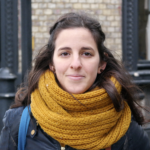
Paula Ruibal
Country of origin: Uruguay
Host institution: Leiden University Medical Center
Hosting group: Department of Infectious Diseases
Project:
Investigation of a novel immune cell type in human infectious disease: characterization of the specificity, function and pathogen killing ability of T cells restricted by non-classical HLA-E molecules in Tuberculosis
Starting date: 15 January 2018
Abstract:
Based on recent work from the Tuberculosis Research group in the Department of Infectious Diseases at LUMC on the discovery of highly in vivo expressed Mycobacterium tuberculosis (Mtb) antigens, using genome wide bioinformatics and immunomics approaches, I here propose to identify Mtb derived epitopes presented by HLA-E from the most immunogenic and protective antigens identified thus far during Mtb infection.
HLA-E restricted Mtb specific CD8+ T-cells represent a novel human T-cell subset, which has only very recently been identified and which could be highly relevant during the immune response to Mtb infection. HLA-E has two alleles, HLA-E*01:01 (ER) and *01:03 (EG), which differ in only one single amino acid at position 107 (arginine to glycine) outside the peptide binding groove, limiting the number of peptides that can bind to it and rendering it an ideal presentation molecule for conserved Mtb antigens in a vaccine context .
HLA-E expression is enriched in Mtb phagosomes compared to classical HLA class Ia family members, thus facilitating HLA-E loading by Mtb peptides in infected cells. In contrast to most other HLA class I molecules, HLA-E is relatively resistant to down-regulation by HIV, a co-infection that is responsible for most of the TB related mortality.
Identification of novel epitopes will be performed in close collaboration with Dr. Thomas Abeel at TU Delft during a 3-month secondment where I will implement an improved prediction algorithm for the selection of the best candidate epitopes. I will subsequently determine the ability of the identified epitopes to induce superior CD8 T cell activation and Mtb killing in infected human macrophages.
I will further dissect the molecular determinants that control Mtb peptide binding and presentation by the two HLA-E alleles in relation to T cell activation. The resulting knowledge will be harnessed for TB vaccine development.

Robert Ballingall
Country of origin: Canada
Host institution: Leiden University
Hosting group: Institute of Political Science
Project:
Constitutionalism and Ethical Authority: A Classical Problem in Modern Politics
Starting date: 30 April 2018
Abstract:
Constitutional government—the idea that political power be subordinate to law—is widely held to be one of the greatest achievements of liberal democracy. But it is also an idea beset by paradox, for how can power be limited by law if law itself is the creature of power?
If law ultimately originates with some of the very agents whom it would constrain, then won’t it reflect the advantage of those agents rather than a curb on their discretion? Although this problem is coeval with the very concept of constitutionalism and is widely discussed in the literature, it has taken on a new urgency in the twenty-first century; it is linked to the much-lamented cynicism, apathy and nativism to which democratic publics are increasingly prone.
These phenomena grow from the perception that elites pursue private advantage at public expense, apparently confirming the experience of social competition as a zero-sum struggle. My project, Constitutionalism and Ethical Authority: A Classical Problem in Modern Politics, sheds new light on the populist crisis by drawing on the resources of classical political thought.
Although classical philosophers such as Plato and Aristotle were very much alive to the paradox of lawfulness and conceived novel accounts of its origins and remedies, the resources afforded by their theories for understanding constitutional government have hardly been exploited. This is unfortunate because the dimensions of the problem that the classical theories emphasize are seldom discussed by modern scholars yet endure in modern societies.
These pertain to the excellences of character needed to sustain lawfulness and observe political moderation. My research suggests that the new populism is related to a decline in ethical discourses that extol these character traits or ‘virtues’, especially among the politically ambitious. Without the promise of honor or threat of shame that these discourses supply, elites are more prone to self-serving beliefs and purposes, a tendency that helps inspire the cynicism and nativism increasingly gripping liberal democratic societies.

Rosaleen March
Country of origin: United States of America
Host institution: Leiden University
Hosting group: Institute of Environmental Sciences, Department of Conservation Biology
Project:
Application of remote sensing to model spatiotemporal distribution of functional diversity
Starting date: 6 November 2017
Abstract:
Functional diversity among species communities allows ecosystems to function optimally and provide essential services for society, e.g. carbon sequestration and climate regulation and also determines the ecosystem’s resilience to environmental changes, such as climate change.
Therefore, functional diversity is of direct economical and societal importance. Mapping functional communities, given their species interactions, is more ecologically meaningful than mapping single traits and more useful for understanding ecosystem functions. With species traits being emphasized as Essential Biodiversity Variables, information on functional diversity for international policy will become increasingly important, but we currently lack the tools for its assessment and its drivers across spatial and temporal scales are not yet clear.
Temporal dynamics of functional diversity has not been investigated while this information would give important insights into how ecosystem functioning responds to change.
In this project, I will determine the spatiotemporal dynamics of functional diversity and its drivers using remotely sensed data from hyperspectral vegetation signatures, vegetation structure, time-series of earth observation data and abiotic environmental data, incorporating them into a distribution modelling framework. Models will be trained and tested using detailed plot data.
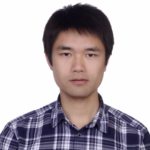
Weiming Wang
Country of origin: China
Host institution: Delft University of Technology
Hosting group: Department of Design Engineering
Project:
Topology Optimization for Additive Manufacturing: Considering Critical Process-Dependent Loads
Starting date: 1 March 2018
Abstract:
In this project we investigate the fundamental problem of considering process-dependent loads in structural optimization. Structural optimization is the classical engineering discipline of finding the structure which is optimal with respect to some performance measures, e.g. maximizing structural stiffness subject to a minimum amount of material volume.
The performance is typically measured and optimized for the entire, i.e. the final, structure, while structural properties at intermediate stages are not taken into account at all. In combination with additive manufacturing, topology optimization is the method of choice as it can fully explore freedom in shape and layout enabled by additive manufacturing.
In this project, we will derive new formulations to incorporate process-dependent critical loads into structural (topology) optimization and will develop efficient numerical algorithms for solving the 3D optimization problem. The solution will eliminate the necessity of additional supports for maintaining structural stability in (large scale) additive manufacturing, leading to more economic, more accurate and faster fabrication.
